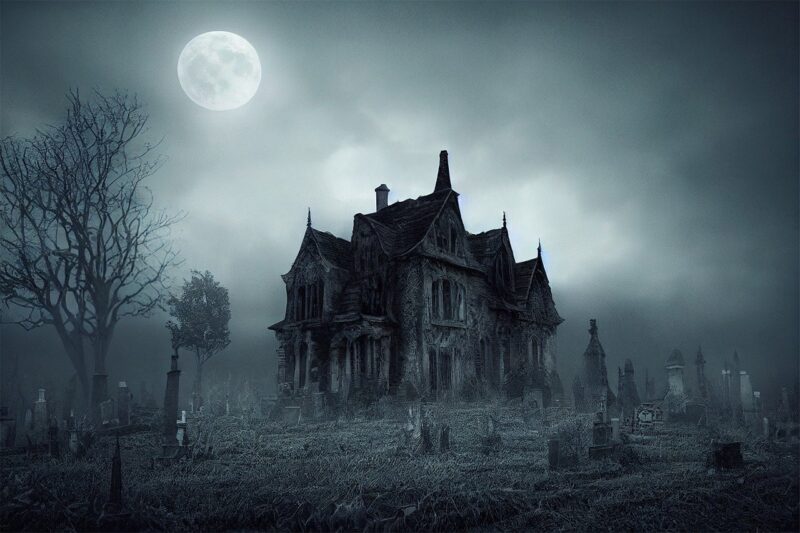The Horror Movies That Make Us Question Reality and Leave a Lasting Impact
November 17, 2024

Horror movies, often viewed as mere sources of entertainment, possess a profound ability to tap into the deepest fears and anxieties of human existence. They serve as a mirror reflecting our societal tensions, personal traumas, and the shadowy corners of our psyche. In this article, we will explore some of the most impactful horror films that have challenged our perception of reality, created lasting impressions, and made us question what is truly real.
1. The Power of Horror Movies
The horror genre is uniquely positioned to confront our fears head-on. Most people gravitate towards horror for varied reasons—some seek adrenaline and thrills, while others appreciate the deeper psychological commentary. Unlike other genres, horror can leave an indelible mark, lingering in the viewer’s mind long after the credits roll. The best horror films do not just aim to scare; they explore complex themes like existential dread, the nature of evil, and the concept of reality.
Consider how horror often blurs the lines between reality and illusion. In the world of horror, the familiar turns uncanny, and the ordinary transforms into the terrifying.
2. The Shining (1980)
Stanley Kubrick’s adaptation of Stephen King’s novel, *The Shining*, remains one of the most iconic horror films in cinematic history. It revolves around the Torrance family, who become winter caretakers at the isolated Overlook Hotel. Isolated from the outside world, Jack Torrance (played by Jack Nicholson) slowly descends into madness, influenced by the hotel’s supernatural forces.
The real horror of *The Shining* lies not only in its supernatural elements but in the unraveling of Jack’s psyche. As viewers, we’re forced to grapple with the themes of isolation, violence, and the fragility of sanity. The film’s ambiguous ending leaves us questioning the nature of reality and what is real versus what is imagined.
3. Get Out (2017)
Jordan Peele’s *Get Out* brilliantly intertwines horror with social commentary on race relations in America. The film follows Chris, a Black man who visits his white girlfriend’s family for the weekend. Initially treated with warmth, Chris soon discovers a sinister plot that highlights the exploitation of Black bodies and the insidious nature of racism.
While presenting itself as a psychological thriller, *Get Out* cleverly critiques societal norms, forcing audiences to confront real-world issues. The film’s unsettling atmosphere and horrifying reality make it profoundly impactful, leaving viewers questioning their perceptions of safety, trust, and race.
4. Black Swan (2010)
Darren Aronofsky’s *Black Swan* delves into the world of competitive ballet, revealing the toxic pressures of perfection. The story follows Nina, portrayed by Natalie Portman, who strives for the lead role in a production of *Swan Lake*. The intense physical and psychological demands of her pursuit blur the boundaries between reality and delusion.
As Nina grapples with her dual role of the innocent White Swan and the seductive Black Swan, the film explores themes of identity and the consequences of ambition. The horror in *Black Swan* arises from the protagonist’s descent into madness, serving as a chilling reminder of the destructive nature of striving for unattainable ideals.
5. Hereditary (2018)
Ari Aster’s *Hereditary* is a modern horror masterpiece that delves deeply into grief, trauma, and family dynamics. Following the death of the family matriarch, the Graham family begins to unravel as dark secrets and a sinister legacy come to light. The horror in this film stems not only from supernatural elements but from the very real emotional turmoil experienced by the characters.
*Hereditary* leaves us questioning fate, destiny, and the lengths to which family loyalty can be tested. The deeply psychological horror resonates with viewers, compelling them to confront the fears of their own familial ties and legacies.
6. The Sixth Sense (1999)
M. Night Shyamalan’s *The Sixth Sense* features the iconic line, “I see dead people.” The plot follows a young boy named Cole, who is haunted by his ability to see and communicate with the deceased. While this film is often categorized as a supernatural thriller, its underlying themes of trauma, isolation, and the quest for understanding elevate it into something much deeper.
The twist ending of *The Sixth Sense* is a masterclass in storytelling, leaving the audience to reconsider the entire narrative. It prompts discussions about perception, reality, and how our experiences shape our understanding of the world.
7. The Babadook (2014)
Jennifer Kent’s *The Babadook* centers around a grieving widow, Amelia, who struggles with her son Samuel’s fear of a dark creature that emerges from a mysterious book. The film is an exploration of grief, mental illness, and motherhood, using horror as a vehicle to depict the struggles of living with loss.
As the story unfolds, the titular Babadook transforms into a metaphor for Amelia’s unresolved trauma and depression. This psychological exploration of fear makes *The Babadook* more than just a horror film; it becomes a compelling commentary on the complexities of mental health and the importance of confronting one’s demons.
8. Conclusion: The Lasting Impact of Horror
The films discussed above illustrate that horror is not merely about jump scares or thrills; it serves as a powerful medium for exploring the human condition. These movies force us to engage with uncomfortable truths, challenging our perceptions of reality, community, and self.
As we continue to navigate a complex world filled with uncertainty, horror films remain a poignant reminder of our vulnerabilities, societal fears, and the darker aspects of human nature. The lasting impact of these stories often transcends the genre, leaving viewers forever changed by their experiences.
Through unnerving narratives and unforgettable imagery, these films compel us to confront our fears, leading to profound personal reflections long after the credits have rolled.






